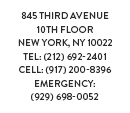South African Summer Citrus Expands U.S. Destinations
Port of Houston Begins Receiving Shipments
Houston, Texas – September 3, 2014 – South African Summer Citrus has expanded its arrival destinations with a pilot program to include the Port of Houston. A shipment of seven containers has been successfully received there and will be followed by another four containers scheduled to arrive on or around September 9th. Both shipments contain navel oranges.
“We are very excited about this expanded program to the U.S.,” said Suhanra Conradie, CEO of the Western Cape Citrus Producers Forum (WCCPF). “It has been our plan to better meet the need of importers as well as retail stores in the mid- and far west points of the U.S..” The WCCPF is a consortium of some 230 growers approved to export citrus from South Africa to the U.S. South Africa is the second largest exporter in the world of citrus, next to Spain.

Containers carrying South African Summer Citrus arrive in the Port of Houston. The pilot program of navel oranges in 2014 expands the entrance points of South African Summer Citrus to the US and enables faster and more efficient fulfillment to retailers in the mid- and far west regions of the US.
The Port of Houston was selected for its location and state-of-the-art facilities used to inspect the fruit on arrival. “Houston is an excellent gateway and provides a central location enabling greater efficiencies of time and cost,” said Ms. Conradie. “It offers us the capability to serve the market needs of the entire Midwest area from Houston to Chicago, and points west.” Houston is the largest container port on the Gulf Coast and the seventh largest container port in the US.
“We are proud to welcome South African Summer Citrus to Texas,” said Ricardo J. Arias, Trade Development Manager for the Port of Houston. “Whenever we are able to bring new business to the Port, it boosts employment and economic activity in our region which ultimately is the mission of the Port of Houston Authority.”

South Africa’s Western Cape Citrus Producers Forum director and citrus grower Piet Smit (second from left) receives a plaque commemorating the arrival of South Africa’s first shipment of navel oranges to the Port of Houston. From L-R: Bruce McEvoy, USA Representative, South African Citrus Growers Association (CGA), Piet Smit, Roger Guenther, Executive Director of the Port of Houston Authority, and Ricky Kunz, Managing Director of Trade Development, Port of Houston Authority.
On arrival, the citrus undergoes the standard rigorous inspection conducted by the USDA Animal Plant Health Inspection Service (APHIS). Citrus from South Africa is inspected by USDA APHIS as well as South Africa’s Department of Agriculture, Forestry & Fisheries (DAFF) prior to leaving the Port of Cape Town.
“The South Africa Summer Citrus program is unique in that it is inspected prior to departure and again on arrival in the US,” said Ms. Conradie. “We are fortunate to work so closely with DAFF and the USDA APHIS. Both agencies are instrumental in the success of the citrus program and are to be lauded for their vigilance with us to assure citrus safety as well as support the program’s expansion in the US.”
“The expansion of the program to the Port of Houston will enable us to better meet the needs of our retail customers,” said Marc Solomon Senior Vice President, Capespan North America. “Having the fruit arrive in the South Western region of the US allows us to service clients in the South West and Midwest, getting to the retailers and ultimately to consumers only that much more quickly. Improved efficiencies result in lower costs for the consumer at a time when nutrition and healthy food options are essential.”
Capespan North America and Seald Sweet are the two importers receiving the fruit from the shipments to Houston, with Capespan North America receiving the majority of it. Capespan North America along with Bruce McEvoy, U.S.A. Representative, South African Citrus Growers Association (CGA), has been instrumental facilitating the Houston program.
“Seald Sweet has been an importer of South African Summer Citrus since the start in 1999 and has been a leader in growing the category here,” said Mayda Sotomayor, CEO of Seald Sweet. “This is a next logical step in the expansion of the import/export program from South Africa and helps us continue meeting the needs of our customers.”
South African Summer Citrus complements the domestic citrus industry from June through October when U.S. grown citrus is less available. In its 15th year, South Africa exports +/- 42,000 tons of citrus each year to the U.S. in both containers and conventional refrigerated vessels to the Port of Newark (containers) and the Port of Philadelphia at Gloucester City, NJ. Varieties include Clementines, Navels, Midknight Valencias and Star Ruby Grapefruit.
“With the success of the pilot program to Houston, we expect to export more fruit there in 2015,” said Ms. Conradie. “While our export volumes have remained steady in recent years, we envision the potential for greater volumes to the US as demand for our high quality fruit continues to grow.”
The WCCPF facilitates logistical, marketing and sales support coordination of products for its members. Its mission is to maintain and expand its role as the preferred and reliable supplier of fresh and safe summer citrus for the US. www.summercitrus.com
###



